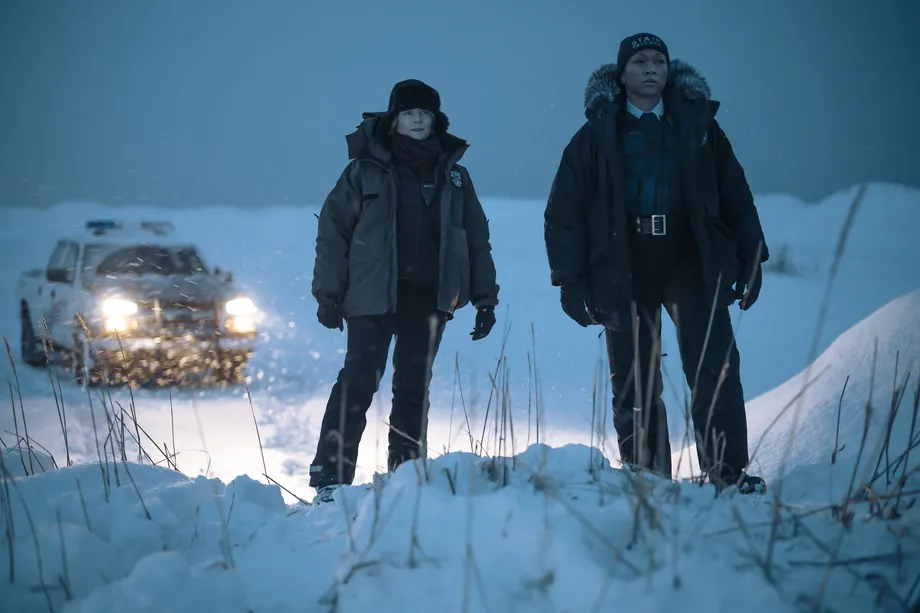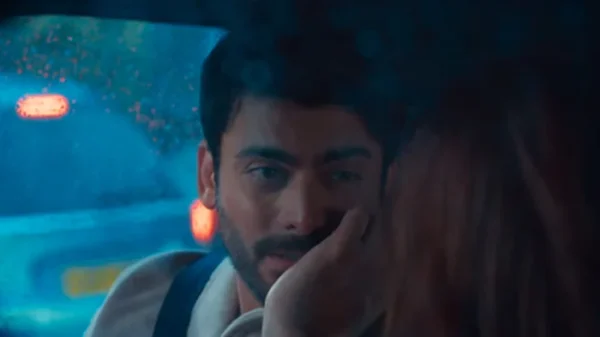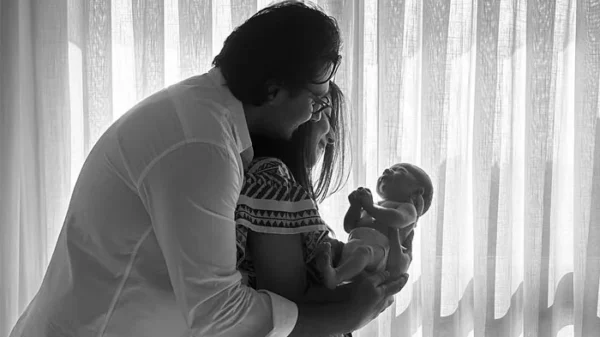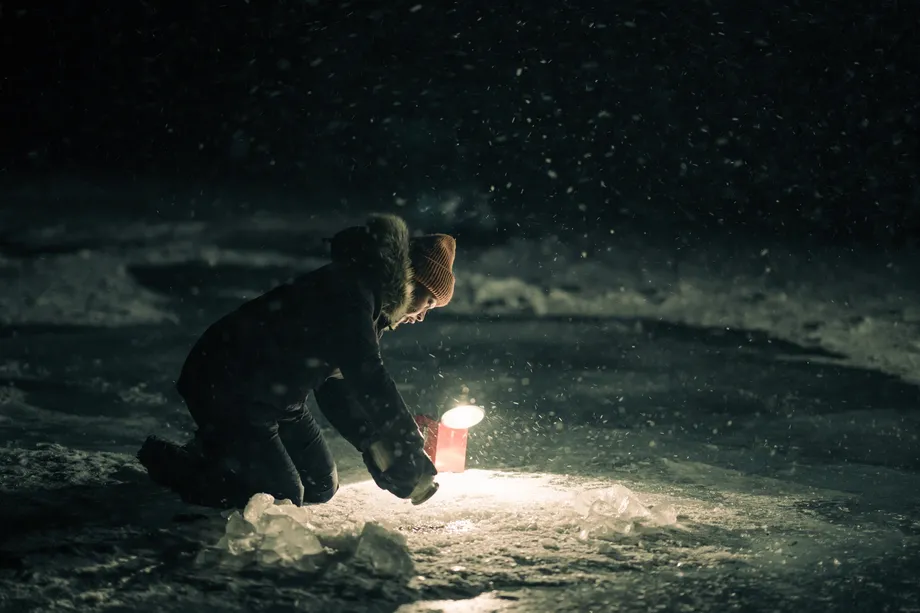An attempt to reckon with True Detective: Night Country’s bonkers season finale
What True Detective’s fourth season gets wrong about True Detective.
Being a fan of True Detective means confronting uncomfortable contradictions. The debut season is hailed as a cosmic horror noir masterpiece yet also criticized for feeling tailored exclusively for a male audience. While it tackled toxic masculinity, it paradoxically contributed to the dehumanization of women, inadvertently reinforcing the very concept it aimed to dismantle.
Despite receiving critical acclaim and shaping the landscape of prestige drama, True Detective also cultivated a toxic fanbase. These fans, mostly men, misunderstood the show’s message but fancied themselves as integral to its deeper meaning, viewing themselves as the true detectives of the narrative. Consequently, the first season is often overshadowed by discussions of misogyny rather than its stellar performances, memorable aesthetic elements, or iconic lines like “Time is a flat circle.” The subsequent seasons have largely faded from memory in comparison.
The uncomfortable truths surrounding True Detective’s legacy weigh heavily on season four, titled True Detective: Night Country, a decade after the original season. Each subsequent season of the anthology series has struggled to live up to the acclaim of the first. However, season four introduces a new dynamic by focusing on two women, a local police chief (portrayed by Jodie Foster) and a state trooper (played by Kali Reis), as they investigate a series of murders in the harsh Alaskan wilderness. This shift both raises the stakes for the series and reignites the complex issues that have always plagued True Detective.
The new showrunner and writer/director of Night Country, Issa López, faced two challenging and ambitious objectives: Firstly, the season needed to establish itself as a worthy successor to a highly acclaimed predecessor, which is no easy feat. Secondly, it aimed to address the well-known sexism of the first season in a manner that would pave the way for a fresh direction for the series. The sixth episode, aired on HBO, had the demanding task of achieving both goals in a finale that would leave viewers satisfied.
For many fans of the original True Detective series, their strong reaction to the second goal has clouded their ability to objectively evaluate how effectively the new season is achieving the first goal. Similarly, there are longtime fans who are enthusiastic about the series moving in a new direction and are therefore inclined to disregard any criticisms of season four’s creative objectives as merely rooted in misogyny.
These perspectives appear to be irreconcilable. However, there exists a third viewpoint, wherein Night Country’s creative shortcomings undermine its attempt at feminist redemption. The season finale veers away from an intriguing cosmic mystery and instead leans into a clumsy Me Too revenge narrative, leaving numerous plot threads dangling and arguably diminishing the overall strength of the series.
(Note: Spoilers for Sunday’s season four finale abound.)
Season Four’s clunky writing and direction never got what made True Detective work
In fairness to López, True Detective has a history of missing the mark by a wide margin. Season two, hastily produced in 2015 by series creator and writer of season one, Nic Pizzolatto, amplified all the negative aspects of the first season. It featured exaggerated displays of tortured masculinity, portrayed women mainly as superficial objects of desire, and failed in its attempt to replicate the profound existential monologues delivered by Matthew McConaughey’s character, Rust Cohle, by Colin Farrell’s detective character, resulting in shallow macho posturing. Pizzolatto seemed to distance himself from accusations of plagiarism by stripping away many of the captivating Weird fiction elements that defined the first season, such as enigmatic occult figures, mysterious Lovecraftian rituals, and references to the “Yellow King.”
Season two lacked supernatural elements, but the third season, released in 2019, marked a true return to form. Pizzolatto revisited the deep South and explored a cold case intertwined with occult horror, accompanied by a soundtrack from T Bone Burnett that added depth to the narrative. However, by this time, the television landscape had evolved, and True Detective faced competition from its own spiritual successors. Shows like Mindhunter (2017) and The Terror (2018) successfully captured elements of True Detective’s brilliance for themselves.
However, with Mahershala Ali delivering a flawless performance as an aging detective dedicated to unraveling a cold case over several decades, season three solidified the True Detective formula. It centers around a complex mystery intertwined with profound character development, sprinkled with glimpses of a sinister alternate reality, captured through meticulous cinematography, and written with a literary flair. Above all, True Detective requires a philosophical underpinning—a willingness to confront and engage with those eerie horrors, even if only briefly before moving forward.
Night Country appears to fulfill many of these criteria. Inspired by the recently resolved Dyatlov Pass incident, the season revolves around unraveling the mysterious deaths of a team of scientists. These individuals were discovered naked, frozen, and seemingly terrified to death in the icy tundra near Ennis, Alaska—a town mainly inhabited by Iñupiat residents whose environment has been tainted by pollution from a malevolent mining operation, resulting in blackened water. Against the backdrop of Ennis’s sunless polar nights, Sheriff Danvers (played by Foster) and Trooper Navarro (portrayed by Reis) embark on an investigation while confronting their own troubled past. As they delve deeper, they find unexpected connections between the current crime and the unsolved murder of an Iñupiaq activist. Realizing they must set aside their differences, the women join forces to unravel the mysteries and solve all the murders simultaneously.

Jodie Foster and Kali Reis explore the terror of the Arctic. Michele K. Short/HBO
Similar to the first season, the finale of Night Country leads us to a physical maze, this time hidden within the ice caves beneath Ennis. López has replaced the Yellow King with an unnamed divine feminine entity, possibly representing Sedna or Mother Nature. Throughout the season, there are playful references to the “Blue King” crab company. The locals are familiar with this entity, and it becomes apparent that some of them equate the spirit of the murdered activist with this ancient being. In the concluding episode, we finally encounter her, or at least come close to her presence.
However, the parallels with the first season are merely superficial. López originally did not intend for Night Country to be part of the True Detective universe, and her attempts to incorporate nods to previous seasons highlight this disconnect. Throughout season four, there are references to season one, but they often lack context and fail to tie into the current narrative. For example, we discover that a character from season four had a connection to Rust Cohle’s father, but it doesn’t add much significance to the story. Similarly, the revelation of ties between the evil mining corporation and villains from previous seasons feels arbitrary. While spirals are omnipresent, they fail to offer any deeper insight into their symbolism.
López seizes upon the famous line, “You’re asking the wrong question,” and incorporates variations of it repeatedly throughout season four. However, this repetition becomes excessive and detracts from meaningful storytelling, evolving into an irritating replacement for substantive writing. Each reference, whether it’s “flat circle” or Funyuns, feels like mere fan service—a superficial addition that fails to enrich our comprehension of the True Detective universe.
Similarly, Night Country’s exaggerated horror elements span from unnecessary jump scares to spectral occurrences lacking rationale. While season two lacked supernatural elements entirely, Night Country is saturated with ghosts to the extent that their impact is diluted.
Night Country makes puzzling aesthetic choices that veer into unintentional comedy. The soundtrack features somber minor-key covers of popular songs, such as Eagle-Eye Cherry’s “Save Tonight” and eerie Christmas music, which clash with the show’s tone. In the finale, a dark emo rendition of “Twist and Shout” is played, and the solemnly delivered line “Shake it up, baby” elicits laughter due to its jarring dissonance.
Night Country’s finale goes belly-up in the most frustrating way possible
To clarify, both Foster and Reis deliver outstanding performances. Foster’s portrayal of Sheriff Danvers captures a tough, solitary demeanor as she distances herself from her family, partner, and community while fiercely protecting them. When her facade eventually crumbles, it unveils a poignant portrayal of grief and strength. On the other hand, Reis’s Navarro exudes vulnerability, displaying intense emotions as she delves deeper into her pursuit of truth and embarks on a quest to uncover the mysteries of the north.
Individually, they embody the tradition of True Detective’s conflicting investigators who fuel each other with a mix of animosity and shared desperation. However, Danvers’ cynicism and Navarro’s spirituality never quite harmonize—a fundamental flaw that Night Country struggles to address. Despite Reis’ remarkable performance, her chemistry with Foster feels lacking, with her character often limited to rudeness and sarcasm when they share the screen. In episode six, Foster delivers a standout performance, revealing some of her character’s personal struggles, only to receive a disconnected response from Navarro. It seems as though López didn’t know how to follow up on her own powerful moment, leading to a season filled with perplexing choices and inconsistent character development.
Perhaps the most puzzling decision occurs in the finale, where it’s revealed that the murders of the scientists were orchestrated by the women of Ennis as retribution for the activist’s murder—a crime that the scientists themselves committed and concealed years earlier. The show quickly overlooks the unlikely manner in which the women uncover this cover-up, rushing towards what’s supposed to be a dramatic climax: they storm the science lab, heavily armed, and exact their revenge by stripping the scientists and leaving them to survive in the harsh Arctic conditions.
The climax appears absurd and unearned, with underdeveloped characters serving as mouthpieces for various political agendas throughout the season, such as environmental activism and post-Roe medical care. However, in this instance, it seems that López was determined to force-fit a feminist morality tale, even at the expense of coherent storytelling. Adding to the frustration, the biggest unresolved mystery of the show—involving a human tongue dropped on the floor—is attributed to the mysterious Arctic god, suggesting that “she” made her presence known by inexplicably dropping a tongue under a lab table.
In the finale’s closing shot, Navarro’s fate—the season’s second-biggest mystery—is deliberately left open-ended. Did she venture into the tundra permanently, drawn by the allure of the ice goddess akin to Frozen 2, or did she return alive? It remains uncertain, though the notion of her being a ghost herself would be more fulfilling if Navarro’s internal struggle and deteriorating mental state had been more prominently explored throughout the season, rather than feeling like an occasional afterthought.
The ridiculous conclusion to the plot comes after Pizzolatto himself allegedly criticized this season, labeling the writing as “stupid,” which delighted certain fans eager to criticize the show solely because of its female representation. Who should we support in this situation? Naturally, we want to cheer for Night Country, especially since it has garnered “universal acclaim” on Metacritic. However, my own personal opinion, represented by a metaphorical dirty tongue backed by the world’s worst Lana Del Rey album, disagrees with this assessment.
The most frustrating aspect of this situation is that it could have been avoided. There are numerous examples of female crime-solving duos portrayed in a much more well-written and well-directed manner, within communities of women empowering themselves. For instance, last year’s greatly underappreciated Australian dramedy Deadloch effectively utilized this formula, combining comedy, suspense, and feminist themes through clever writing, a coherent storyline, and outstanding acting and chemistry between its two lead characters—arguably the most authentic detectives amidst this debacle.
The decline from Pizzolatto’s skilled crafting in season one to the clumsy, amateurish writing of season four was likely preventable. If Night Country had been given the freedom to stand on its own, without the burden of living up to season one or adhering to its Weird elements, it likely would have been a superior show. While HBO’s desire to revive one of its top franchises is understandable, Night Country might serve as a cautionary tale that sometimes it’s better to leave dormant eldritch creations undisturbed.
Related





















































